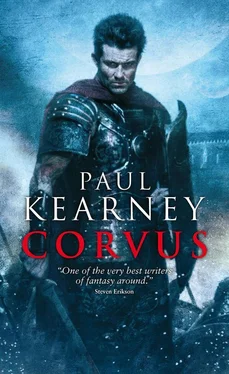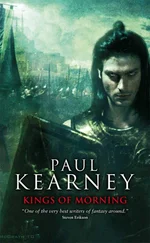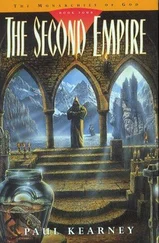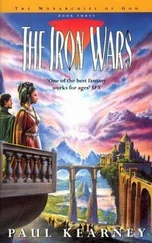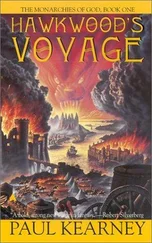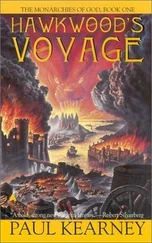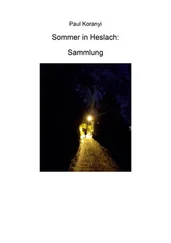Paul Kearney - Corvus
Здесь есть возможность читать онлайн «Paul Kearney - Corvus» весь текст электронной книги совершенно бесплатно (целиком полную версию без сокращений). В некоторых случаях можно слушать аудио, скачать через торрент в формате fb2 и присутствует краткое содержание. Жанр: Фэнтези, на английском языке. Описание произведения, (предисловие) а так же отзывы посетителей доступны на портале библиотеки ЛибКат.
- Название:Corvus
- Автор:
- Жанр:
- Год:неизвестен
- ISBN:нет данных
- Рейтинг книги:5 / 5. Голосов: 1
-
Избранное:Добавить в избранное
- Отзывы:
-
Ваша оценка:
- 100
- 1
- 2
- 3
- 4
- 5
Corvus: краткое содержание, описание и аннотация
Предлагаем к чтению аннотацию, описание, краткое содержание или предисловие (зависит от того, что написал сам автор книги «Corvus»). Если вы не нашли необходимую информацию о книге — напишите в комментариях, мы постараемся отыскать её.
Corvus — читать онлайн бесплатно полную книгу (весь текст) целиком
Ниже представлен текст книги, разбитый по страницам. Система сохранения места последней прочитанной страницы, позволяет с удобством читать онлайн бесплатно книгу «Corvus», без необходимости каждый раз заново искать на чём Вы остановились. Поставьте закладку, и сможете в любой момент перейти на страницу, на которой закончили чтение.
Интервал:
Закладка:
Parnon looked down at the scroll as though the boy had placed a turd in his hand. His gaze swept the Kerusia circle, and then he broke the seal, unrolling the paper. His lips moved, and his face grew set and hard.
He looked up at the boy again. “How did you get here?” he asked.
“I ran, your honour.”
“You ran? What – all the way?”
The boy laid an open hand on his chest as though feeling for his own heartbeat. “All the way. I swear. Karnos made me promise to stop for nothing, to talk to no-one on the road.”
“Did he send any other message?”
“He told me to tell you there would be no more messages.”
Parnon nodded. “What’s your name?”
“Fidias, your honour.”
Parnon drew near the boy and set a hand on his shoulder. “You have done a thing of great worth, Fidias. I thank you for it.” He looked at Ulfos, who stood biting his thumbnail, his cloak bundled around his arms.
“Look after this young fellow. He has quality in him. Go now, Fidias – you look as though a bath and a hot meal would not go amiss.”
The boy’s face lit up. “Thank you, your honour!” At a gesture from Ulfos he trotted out of the room, his gait a peculiar limping shuffle, at once sprightly and painful-looking.
Parnon threw the scroll down upon the marble floor of the circle.
“Machran is under close siege. The failure of the first assault has not dented Corvus’s determination. He has the walls surrounded and is building a circumvallation to seal off the city entirely. Karnos tells us that the city can subsist perhaps a month before starvation sets in. He asks that the forces of the League reassemble for a relief attempt as soon as possible.”
He bent and retrieved the scroll again, his eyes dark.
“That’s it then,” one of the Kerusia said, his breath rattling in his throat. “Machran is finished.”
“Without our help,” Parnon said.
“We gave our help already, and saw our men burned outside Afteni,” another said bitterly. “We have done enough. Do you forget that Machran offered us no help fifteen years ago when Pontis attacked?”
Parnon lifted his hand. “Let us not dig up the past. There’s enough here to occupy us right now.”
“I thought Machran had greater reserves of food,” another said.
“They had.” It was Ulfos who spoke up now. He worried at his thumbnail like a terrier after a rat. “So many refugees came into the city from Arkadios and some of the other hinterland cities that the numbers went beyond normal reckoning. Too many mouths to feed.”
Parnon tapped the crumpled scroll against his upper lip. “How many spears can we still turn out, Ulfos?”
“Maybe three thousand, if we leave nothing behind.”
“You think we could persuade the other polemarchs to meet here? Pontis, Arienus?”
“They’ve already been beat once by Corvus, Parnon. What makes you think they’ll stake another throw of the knucklebone?”
Parnon held the scroll out. “Corvus lost a thousand men in his failed assault. He has had to detach more to hold down Arkadios, Afteni, and the other hinterland cities. He has nothing like the numbers that faced us before. If we do not try again now, then it is over for Machran.”
“If Machran falls, then no-one can stand against him,” one of the Kerusia said, an old man who banged his olive-wood walking stick on the floor with a crack. “The cities of the Planaean Coast have no armies to speak of; Minerias grows wine, not fighting men. They’re soft – useless! There’s us, the Pontines and the Arienans. That’s all the backbone left in this part of the world. By Phobos, were I young again -”
“Therones is right,” Parnon said. “All the best of the Macht fighting cities are either already gone, or were at Afteni with us. We must reassemble them -it has to be worth a try. I will go to Pontis myself.”
“Then you’d best run as fast as that brave boy with the bloody feet,” old Therones barked, and he banged his stick again.
North, along the ancient caravan trails which ran in the hollows of the hills and followed the fastest path like the flow of water. The roads were brown now, rutted with hardened mud, and there were few people upon them at this dark heart of the year.
The southern hinterland of Machran had not yet seen the host of Corvus in all its might, but they had endured the foraging parties he sent out to keep his army fed, and the people of the small farms and towns south of Machran had marvelled at the sight of the Companions on their tall black Kefren horses, beasts bred from the Niseians that bore the Great King himself.
The Kufr who rode them spoke Machtic, after a fashion, and sometimes they even paid for the grain they took and the animals they herded away. They never cleaned out a district entirely, but left the seed-corn and the makings of a new flock or herd behind when they left.
The small farmers of the plain about Gast and Nemasis and Avennos did not quite know what to make of them; they possessed better discipline than the citizen armies that had tramped over their lands from time immemorial, and their outlandish appearance lent them a kind of alien glamour.
There were those who grew hot-headed at the thought of Kufr looting the country of the Macht, but for the most part these kept their thoughts to themselves, as did so many in these days.
North again along the ancient caravan trail, and the land grew empty. The foraging parties of Corvus would find nothing to glean here, for Karnos had already stripped the country bare in preparation for the siege, and the local people had fled their farms rather than starve. What had once been well-tilled farmland was now bare and sere, and scattered houses lay empty to the rain and snow.
And finally the city itself, the centre of the winter world, a subject of conversation in every wineshop from Sinon to Minerias.
Machran had always been a crowded city, even before the siege, but with the addition of the refugees who had followed their retreating spearman rather than live in their own occupied cities, the condition of the place had deteriorated. What open spaces that existed within the walls had over the weeks been transformed from parkland and gardens to shanty-towns, and thousands lived in cobbled together shacks packed into every space available.
The first deaths had begun. Not the normal everyday passing of the old and the very young, but deaths caused by sickness and exposure. The old died as they always had, but they died in greater numbers, unable to afford food or firewood at the inflated prices now soaring all over the city. The Kerusia had tried to stamp out profiteering, and hanged the worst offenders from a gallows newly erected near the Amphion, but a thriving black market existed in the Mithannon and was too widely patronised to be shut down.
The Kerusia met infrequently now, and when it did there was little Karnos asked of them that they did not agree to. A council of older men with their wisdom and their insight might be a fine thing in time of peace, but in wartime hope withered in the old more quickly than the young.
In most respects the city was ruled by himself and Kassander, with help from Murchos and Tyrias. Due legal process was quietly set aside for the duration, and the edicts of the quartet went unquestioned, backed up as they were by all the fighting men of the city.
The ground barley and oats that were held in the city granaries were doled out once a week in the open area around the Amphion where the assembly had usually been convened in happier times. Now it was a fight to keep the hungry people in line, and the gravelled walkways were becoming ever more constricted, hemmed in by the jerry-built slums of the refugees from Arkadios.
The ground in the Avennan Quarter had always been low-lying, and soon it became infamous for the miasma which hung around it, the effluent from thousands of people living more or less in the open, squatting to relieve themselves wherever they could find a quiet corner.
Читать дальшеИнтервал:
Закладка:
Похожие книги на «Corvus»
Представляем Вашему вниманию похожие книги на «Corvus» списком для выбора. Мы отобрали схожую по названию и смыслу литературу в надежде предоставить читателям больше вариантов отыскать новые, интересные, ещё непрочитанные произведения.
Обсуждение, отзывы о книге «Corvus» и просто собственные мнения читателей. Оставьте ваши комментарии, напишите, что Вы думаете о произведении, его смысле или главных героях. Укажите что конкретно понравилось, а что нет, и почему Вы так считаете.
